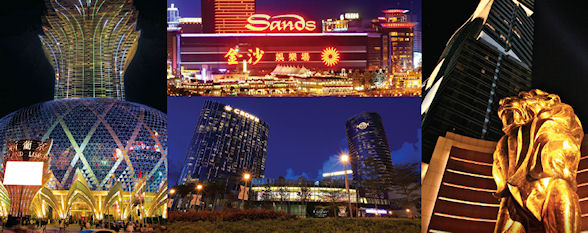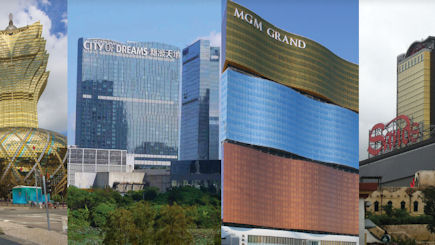This article first appeared in the Jul/Aug 2014 issue of World Gaming magazine.
In the second part of his series of columns examining the renewal of the licenses of Macau’s gaming operators, Luís Mesquita de Melo takes a look at the many variables that might influence the outcome and what new measures the Macau Government could potentially introduce.

The million dollar question that has been consistently raised by the community of gaming operators, investors and industry analysts is what will happen when the Macau gaming concessions and the associated gaming sub-concessions expire in 2020 and onwards?
This question is not formulated out of a mere journalistic interest but arises out of very relevant considerations in terms of business continuity and financial commitments that extend way beyond the 2020/2022 timeline.
This is what we know at this stage:
- The gaming concessions/sub-concessions term constitutes an issue to the development of the Macau gaming industry and, in general, to the investment community.
- Even if the current Chief Executive serves two terms he won’t be in office in 2020.
- It is a Macau official policy (reiterated by President Xi Jinping when he visited Macau SAR in January 2009) that Macau should seek to diversify its economy into non-gaming industries such as conventions and exhibitions, leisure and the entertainment and creative industries.
- Beijing exercises significant influence over Macau’s gaming policy and the central government has clearly indicated that Macau must control its casino growth.
- Finally, if we consider the new projects planned for the Cotai Strip (namely those developed by MGM, Wynn and SJM) scheduled to come online around 2015/2016, the normal payback period in financings for this type of development of eight or nine years will go beyond the 2020/2022 concessions/sub-concessions expiry dates.
It is true that the Macau Chief Executive has the prerogative to extend the concessions/sub-concessions’ term for a maximum of five years, but this possibility can only be exercised once the 18 or 20 years concession/sub-concession term is fulfilled, which doesn’t help to ascertain now what will happen then.

This is what we don’t know:
- What the PRC central government’s approach will be to gaming policies, traveling visa requirements, currency and capital flows and anti-money laundering rules – bearing in mind that each of these factors may have, on its own, a huge impact in the gaming sector in Macau, affecting the market circumstances under which the concessions and sub-concessions will be renegotiated.
- What the next Chief Executive’s position will be in relation to the gaming industry and how the institutional relationship between Macau and China’s central government will influence the policy making process in Macau considering the ongoing debate on the reform of the political system.
- Also important and difficult to predict at this stage is how the Macau market will be affected by the new gaming developments around Asia including Singapore, Vietnam, the Philippines, Cambodia, Korea, probably Taiwan and eventually Japan.
- Where the Chinese economy will be in 2020, and specifically that of Guangdong province, the economic performance of which has been proved to have a direct correlation with the gaming numbers in Macau as its most direct and immediate source of play.
- The outcome of some regulatory challenges (ongoing investigations in relation to FCPA, gaming licensing and listing rules compliance) affecting some of the gaming operators in a very regulated industry.
Although we don’t believe that, based on what we know today, any of the current gaming concessions and/or sub-concessions may be at risk of non-renewal, the fact is that the renegotiation process will eventually open a window of opportunity for the Macau Government to:
- Impose additional investment obligations on the gaming operators relating to non-gaming sectors of the economy.
- Increase the Special Gaming Tax in order to retain more gaming revenue and to prevent the transfer of gaming profits to other jurisdictions.
- Decrease the Special Gaming Tax in order to render the Macau gaming market more competitive in relation to other gaming jurisdictions around Asia.
- Open the Macau gaming market to other key industry players who have shown a long-standing interest in investing in Macau, although we have heard recently a few political statements to the contrary indicating that the Government is not considering issuing new gaming concessions.
- Further control the gaming industry’s growth by imposing contractual restrictions on the gaming operators such as tables and/or slots caps and/or a junket commissions cap.
- Enact legislation reviewing different aspects of the Macau gaming regime proven to have weak teeth and many loopholes.
These, in our view, constitute the main variables that will influence the current gaming concessions/sub-concessions renegotiation process and will eventually reshape, at least to a certain extent, their scope and contractual framework.

We sincerely hope that the government and the regulator do not remain tight-lipped on these issues and that well before 2020 we can see a fruitful discussion and a clear legal path for business continuity being implemented with transparency and based on the rule of law.







